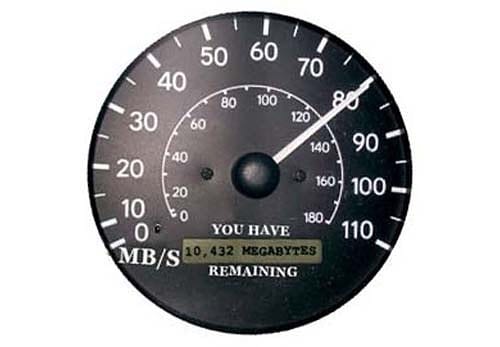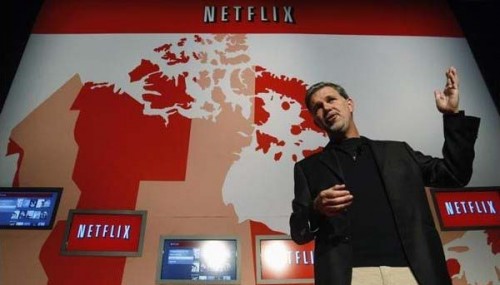
There are certain things in life that you expect to be unlimited. When you step out the door, you expect to get unlimited air. When you go out to a restaurant, you expect to get unlimited (tap) water. And when you sign up for home Internet access, you expect to get unlimited bandwidth. That almost changed for the worse in Canada. While it is true that Internet service providers (ISPs) have had soft caps in place for some time, the majors almost got away with their plan to impose Usage-Based Billing (UBB) which would cost Canadians heavy overage penalties. It looks like the government is stepping in, but how can you keep fighting the good fight?
A Little Bit of Background
Before we can get to how you can fight usage-based billing for Internet access in Canada, we need to first learn how we got here. In short, the governing bodies residing over the industry has given the green light to charge Canadians based on how much Interwebz they consume. Use more, pay more.

On March 1st of this year, Bell was going to set a 25GB limit on its Internet customers. If you go over this allotment in a month, you’re on the hook to pay two bucks per additional gigabyte. Rogers wanted to instate a similar policy on June 1st. Consider that delivering that one gig of data currently costs Rogers about three cents.
This would have had some huge, far-reaching effects. Remember that many smaller ISPs “lease” their bandwidth from the bigger providers. If the bigger providers start charging based on usage, even when the bandwidth is purchased in bulk, these smaller providers could find themselves out of business if they continue to offer unlimited plans.
These smaller ISPs have to maintain their own infrastructure, so the introduction of an “Internet cap” could have had a grossly anti-competitive impact on Internet acess in Canada. It still could if we don’t keep the pressure on.
Bring on the Netflix (Canada)!

Sure, many of us stream videos on YouTube. Should you feel so inclined, you might be downloading loads of content through mIRC, BitTorrent, and all sorts of other sources. You could be buying content through online stores like iTunes. These all take bandwidth, but usage has just reached a tipping point.
Late last year, Netflix Canada entered the arena, offering you unlimited video streaming for $8 a month. That sounded like a good deal until this whole “metered” Internet thing came into play. Considering that it takes a few gigs for every program or movie you stream through Netflix, you can see how the average Netflix user could easily go way over the 25GB limit.
Suddenly, the $8/month deal gets tacked on with $20, $50, even $100 in overages (or more). I can’t put words in their mouths, but you also have to realize that the major ISPs also have a huge interest in conventional cable television. If people dump their cable subscriptions for something like Netflix, the ISPs effectively lose money… and these caps and overages could be their way to recoup those losses.
They Already Do It with Mobile
Metered, usage-based billing is nothing new. You already do that with your electricity provider. Based on how much power you use each month, you get billed accordingly. When you drive around in your car, you pay for how much gas you use. These are limited resources and they charge as such.
Even when it comes to Internet access, we’ve come to expect usage-based billing for wireless data on our smartphones. The major wireless providers don’t offer unlimited data (though newcomer Mobilicity does). Considering that you’re looking at the same major players in this field — Telus, Bell, Rogers — it’s not surprising that they want to cash in on overages with home Internet too.
Think about how many mobile users go over their monthly allotments in airtime, text messages, and wireless data. Think about how much extra revenue the overages related to home Internet access could generate.
Starting the Social Uprising
Not surprisingly, a large number of Canadian Internet users were not happy with the whole Usage-Based Billing (UBB) thing. They took to Twitter to voice their concerns. They complained through online forums. They spreading awareness to other Canadians. Social media played a big part in the Egyptian uprising and it’s playing a big role in the Canadian anti-UBB uprising too.
However, you have to realize that complaining on the Internet won’t be enough. That’s why one way to fight UBB is to contact your Member of Parliament directly. Check the full contact list of current MPs, find the one who represents your constituency, and let your voice be heard. This seems to have worked, because both the Liberals and NDP are behind the push to nix UBB and it looks like they will get their way. That doesn’t mean you should stop.
Keep the pressure up on them by filing an official complaint with the CRTC. The more people do it, the more attention the matter will get and the more they’ll feel like they have no choice but to overturn the UBB decision. Possibly never revisiting it again. That’s good for Canadians and peace of mind for the many people that rely on the Internet for their business and their entertainment alike.
Resorting to Alternative Access?
So what if CRTC comes back with a new plan to replace the one that was shot down? Should some form of Usage-Based Billing indeed go live, there are going to be an increasingly large number of leechers around the city. I used a good number of public hotspots when I go traveling, but there’s a good chance that more people are going to be hanging out at public libraries, coffee shops, and other places where they can BitTorrent surf the web at will…. but that still doesn’t help with Netflix, now does it?
Also, keep in mind that many people still do not secure their hot spots. If UBB were to come in, many of these hot spots would simply “freeze up” in the wake of additional fees and charges. So much for being a good neighbour and sharing the WiFi love!
The Stop the Meter Campaign
Easily the biggest effort against Usage Based Billing was the petition being run through StopTheMeter.ca. The website, which is run by OpenMedia.ca, has already collected over 300,000 (virtual) signatures from Canadians who are against UBB. In fact, the petition is widely being credited with getting the Libs and NDP on board to support the fight against Internet metering. It worked. The petition directed its attention at Industry Minister Tony Clement and others like Green Party Leader Elizabeth May and Bloc Quebecois Leader Gilles Duceppe.
The idea is that if all the major political parties in Ottawa get behind this movement, then the CRTC will have to seriously consider reversing its decision. It looks like the message got heard loud and clear as the government will overthrow the UBB proposal if the CRTC doesn’t buckle to the pressure and take it all back.
In addition to the form found at StopTheMeter.ca, the site also included three other ways that you could spread the message about how to fight usage-based billing for Internet access in Canada. There were even links to sign the Facebook petition, share the message through Twitter, or even to embed the petition on your own website should you feel so inclined.
Keep Fighting the Good Fight
We don’t normally take a political stance here on Futurelooks, but when someone threatens our unfettered access to the Internet, we take notice. While the battle seems to be over against the CRTC and Usage Based Billing thus far, it doesn’t mean that a new proposal couldn’t be put on the table tomorrow that makes enough modifications to slide it under the radar. That’s why it’s up to everyone to educate thy neighbour and to keep fighting the good fight for a UBB free Internet. Vive La Webz!
Love This Article? Hate This Article? Leave a Comment Below!
